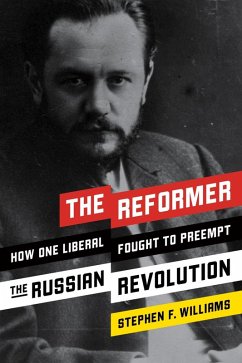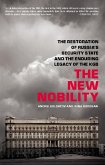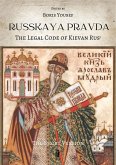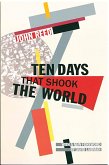Besides absolutists of the right (the tsar and his adherents) and left (Lenin and his fellow Bolsheviks), the Russian political landscape in 1917 featured moderates seeking liberal reform and a rapid evolution towards a constitutional monarchy. Vasily Maklakov, a lawyer, legislator and public intellectual, was among the most prominent of these, and the most articulate and sophisticated advocate of the rule of law, the linchpin of liberalism.
This book tells the story of his efforts and his analysis of the reasons for their ultimate failure. It is thus, in part, an example for movements seeking to liberalize authoritarian countries today-both as a warning and a guide.
Although never a cabinet member or the head of his political party-the Constitutional Democrats or "Kadets"-Maklakov was deeply involved in most of the political events of the period. He was defense counsel for individuals resisting the regime (or charged simply for being of the wrong ethnicity, such as Menahem Beilis, sometimes considered the Russian Dreyfus). He was continuously a member of the Kadets' central committee and their most compelling orator. As a somewhat maverick (and moderate) Kadet, he stood not only between the country's absolute extremes (the reactionary monarchists and the revolutionaries), but also between the two more or less liberal centrist parties, the Kadets on the center left, and the Octobrists on the center right. As a member of the Second, Third and Fourth Dumas (1907-1917), he advocated a wide range of reforms, especially in the realms of religious freedom, national minorities, judicial independence, citizens' judicial remedies, and peasant rights.
This book tells the story of his efforts and his analysis of the reasons for their ultimate failure. It is thus, in part, an example for movements seeking to liberalize authoritarian countries today-both as a warning and a guide.
Although never a cabinet member or the head of his political party-the Constitutional Democrats or "Kadets"-Maklakov was deeply involved in most of the political events of the period. He was defense counsel for individuals resisting the regime (or charged simply for being of the wrong ethnicity, such as Menahem Beilis, sometimes considered the Russian Dreyfus). He was continuously a member of the Kadets' central committee and their most compelling orator. As a somewhat maverick (and moderate) Kadet, he stood not only between the country's absolute extremes (the reactionary monarchists and the revolutionaries), but also between the two more or less liberal centrist parties, the Kadets on the center left, and the Octobrists on the center right. As a member of the Second, Third and Fourth Dumas (1907-1917), he advocated a wide range of reforms, especially in the realms of religious freedom, national minorities, judicial independence, citizens' judicial remedies, and peasant rights.
Dieser Download kann aus rechtlichen Gründen nur mit Rechnungsadresse in A, D ausgeliefert werden.









